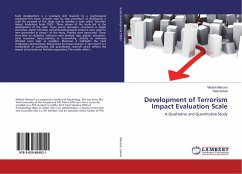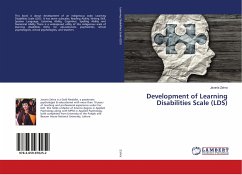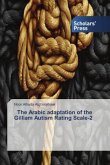Cultural tolerance has generally been studied in relation to international assignees (IAs) for business organizations (Church, 1982; Gasser, 1995; Gasser & Tan, 1999). This study focuses on developing a Cultural Tolerance scale that will effectively measure the attitudes of the U.S. service members in Iraq. Three components of attitude were described by Fishbein and Ajzen (1975) as being: affect, belief, and intention. Through a series of interviews and focus group sessions with SME's from both the U.S. Military and Iraqi citizens, a 15-scenario Cultural Tolerance Scale was created to assess attitude and experienced stress of 96 participants from the University of Northern Iowa. Scenarios detailed a hypothetical situation where a U.S. soldier was confronted with a cultural norm or value commonly held in Iraq. Big Five traits and RWA levels were also examined.
Bitte wählen Sie Ihr Anliegen aus.
Rechnungen
Retourenschein anfordern
Bestellstatus
Storno








